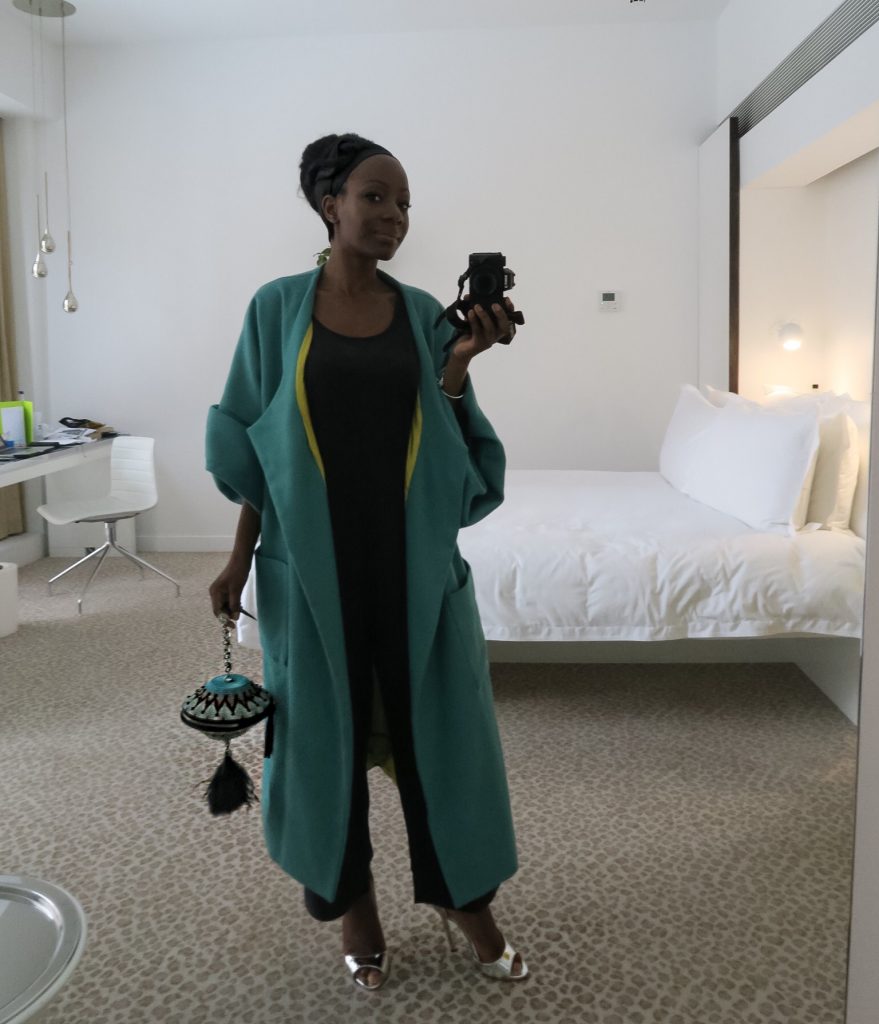Day four of my sustainable fashion diary for London Fashion Week, and I opted for the ASOS Eco Edit. One of the charges, fairly or unfairly, levelled against sustainable fashion is that ethical fashion is either too hard to find, not design-led or too expensive – the infamous ‘not everyone can afford to buy Stella McCartney‘ line, is one that we all know too well.
Well, take a look at the ASOS Eco Edit, formerly known as ‘The Green Room’ – it features clothing, accessories and beauty buys, sourced from across the globe for the eco-minded shopper – all approaching sustainable fashion from a different angle – some pro-planet, some pro-people and quite a few both. The range features brands who are running the gamut of conscious choices – from working to preserve craftsmanship and artisanal skills, handcrafting or recycling jewellery and upcycling vintage. The range is accessible, affordable and simply, quite impressive. It is also easy to find and I love that the Eco Edit can be found mixed in amongst the other products on asos.com, not only in its’ own dedicated space. My ASOS Eco Edit jumpsuit was made from a biodegradable fabric called modal which is produced from renewable cellulosic plants such as beech trees, pine trees, and bamboo. Made by combining the raw material with a manufacturing process to transform the plant pulp to fiber, modal is wear resistant and can be machine washed and tumble dried without shrinking or getting pulled out of shape too.
My bag is from Okapi – a brand named after the African antelope and founded by South African painter Hanneli Rupert nine years ago and continues to be known for creating a locally produced range of products combining exceptional quality and craftsmanship. Okapi are the real deal – working with the original Ostrich farming families from Oudtshoorn, co-operatively run tanneries, in addition to veterinarians, conversationists and artisanal metal workers for their hardware. OKAPI retails between £150 to £1000.
My gorgeous ‘Calla’ coat is from a brand called MERCI ME, and it’s no exaggeration to say that I got stopped at least once every hour and asked about it. For designer Mercy Ogole, “Fashion isn’t just fashion, it is an expression. It is movement, life, art, culture, it is beauty. It speaks before words and in a way words cannot.” Founded by the London-based designer Economics graduate in 2008, the womenswear brand specialises in classic designs with a truly chic edge, creating bold and elegant clothing with a potent blend of design acumen and quality control. Opting for the ‘Made in Britain’ tag is no easy feat, yet when it comes to MERCI ME, everything in the collection has been made entirely in England; from start to finish along the design process, fabrics have been sourced in London and Ogole works with a manufacturer also based in the capital city. With most of the world’s garment production taking place in Asia (where on average workers receive only 1-2% of the cost of the garment), it is important to support designers trying hard to make in Britain, and often paying the premium to do so, particularly as this landscape is so challenging. The UK textile manufacturing industry industry currently employs between 100 and 150 thousand people – one sixth compared to about 30 years ago. As the designer says, “It is a continual process of trying to find a fabric that is not only great quality, but is available in the UK or in particular made in the UK.”
The decision to keep her business local allows Ogole to reduce the carbon footprint generated by shipping and transporting her products, and also enables the brand to work with short turnaround times and therefore produce for demand and not in excess. It also means that if and when it comes to the ‘Who Made Your Clothes?’question, MERCI ME has the answer. Ogole engages with freelancers throughout the design process, including recent graduates, to keep her ideas fresh and the perspective grounded. I love this brand and was happy that I could get behind a British brand and show support. MERCI ME retails between £50 – £500.
